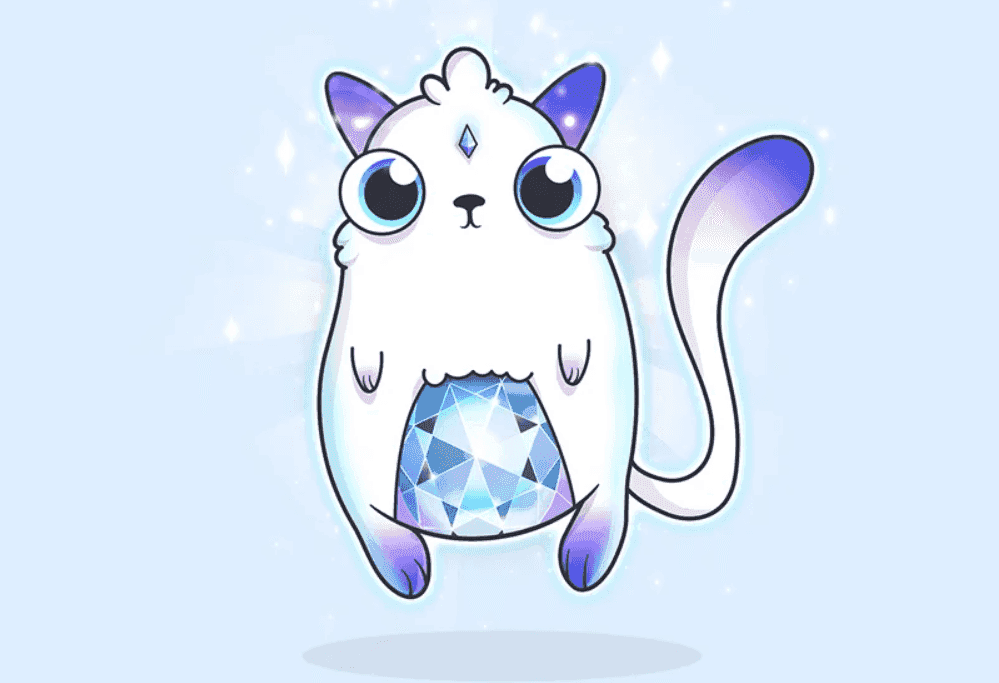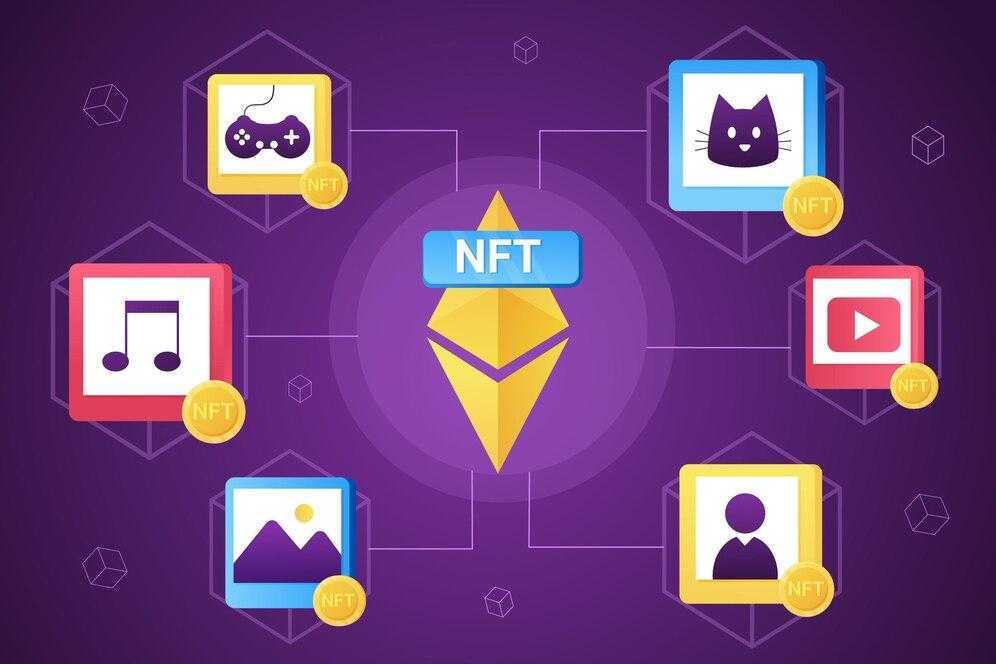NFTs: Their Emergence and Role in the Crypto World

Julie Sweet, CEO of Accenture Limited, a multinational corporation providing professional services and consulting across various sectors, including cryptocurrencies, once emphasized: “Blockchain is expanding beyond cryptocurrencies and deserves our attention, as it has the potential to be genuinely transformative”. It’s undeniable at this point: Blockchain has inspired thousands of programmers who, day by day, unleash their creativity to unlock the advantages of this “immutable ledger” in our daily lives.
While we have made substantial progress, we’ve merely scratched the surface. There’s still much work to be done to enhance a global economic system whose origins date back to the 18th-century Industrial Revolution, persisting until the 20th century. This also applies to administrative processes aimed at improving public services, which have reached their efficiency limits.
Blockchain is here to streamline, innovate, and enhance transparency. While the debate about the feasibility of a world without intermediaries, especially in the financial sector, is both intriguing and current—socioeconomic systems always progress forward, never backward—it’s undeniable that a high level of decentralization often results in smoother operational processes, less bureaucracy, and faster problem resolution.
It may not be the solution for every issue or applicable in every situation, but it’s a promising path. Just 30 or 40 years ago, the notion of securing tamper-proof data within electoral processes was unimaginable. Yet today, in mid-2023, there are countries and cities, like Estonia and West Virginia (USA), already incorporating Blockchain technology into their elections or at least conducting pilot tests.
So far, we’ve emphasized Blockchain’s role in improving numerous administrative processes, especially those involving government services. We’ve also explored how this technology can address the gaps in the global economy. However, Blockchain’s potential doesn’t stop there. We published an educational note featuring valuable and intriguing concepts, including one that has gained incredible popularity in recent years: NFTs, which stands for “Non-Fungible Tokens”.
But what exactly is an NFT? Imagine being able to “tokenize” your favorite collectibles. I’m referring to a vast spectrum, such as art, music, action figures, or even in-game items. NFTs typically represent real-world elements and are predominantly hosted on the Ethereum Blockchain. When someone acquires an NFT, they obtain ownership of a unique digital token with irreplaceable value and authentication that cannot be falsified.
Back in 2017, developers began experimenting with the first NFTs on the Ethereum network, specifically using a standard known as ERC-721. Do you recall “Everydays - The First 5000 Days”, the digital artwork by artist Mike Winkelmann, created by collaging 5,000 images made over 13 years? It was auctioned in March 2021 and sold for an astounding $69,346,250, leaving a lasting impact on Blockchain’s journey.
And who can forget CryptoKitties, the charming game that allows players to raise, buy, and sell digital kittens of various colors and characteristics? This game set NFT sales records in 2017. Some of these feline creatures were sold for hundreds of thousands of dollars (In less than a week, CryptoKitties was responsible for over 11% of Ethereum transactions). Take, for instance, the Genesis kitten, which was sold for an impressive 246 ETH, equivalent to $444,768 at the time of writing this article.

CryptoKitties was a significant milestone that expanded interest in NFTs beyond gaming and into areas like art, music, sports, and fashion. Established brands with a rich history, such as Louis Vuitton and Gucci, have ventured into NFT projects. Even sports giants like Nike, who announced a collaboration with EA Sports in June of this year, have entered the NFT space, and so has Adidas.
RWA (“Real World Assets”)
After defining what NFTs are and providing a brief history, it’s time to introduce a new term in our notes: RWA or Real-World Assets. RWAs are essentially traditional financial resources such as currency, stocks, real estate, bonds, or gold that can be “tokenized” on a blockchain. Do you see where we’re headed? At the very least, you’re starting to get the picture. We’re introducing this term because it shares a core concept with NFTs: the transformation of real-world items into tokens. Thus, the two concepts are related.
This is where the perspective takes on an even more intriguing dimension. Owners of physical assets and traditional economy investors could engage in more efficient and reliable trading. But how does the “tokenization” of existing financial assets or collectibles like art occur? The answer lies in smart contracts, which are programs designed to run on the Ethereum blockchain and eliminate intermediaries. Smart contracts are also the key component we introduced in our article on the importance of decentralization in the e-commerce industry.
Yes, you guessed it: representing “Real World Assets” as tokens is crucial for DeFi finance because it gives rise to stablecoins, which play a critical role in enabling users to shield themselves from cryptocurrency market volatility. Do you see how all the notes we’ve been writing are connected?
Once an asset, like a house or a work of art, is tokenized, it can be traded digitally. This means that the transaction is securely recorded on the Blockchain, and anyone can track the complete purchase and sales history. Now, consider owning an NFT representing a share in a real-world company (RWA). Some projects aim to reward NFT owners based on the real-world company’s financial performance. This concept extends to e-commerce, where owning an NFT representing part of an online platform’s inventory could grant not only influence over the catalog but also rewards tied to sales.
NFTs can also represent high-value items that can be fractionally owned, making them more accessible to multiple people. Additionally, some NFTs don’t represent ownership of physical assets; instead, they focus on offering early access and memberships related to the brand they represent. This may include opportunities for free participation in paid events or the chance to meet influential people associated with the brand.

Following the emergence of Cryptokitties, NFTs have impacted various forms of entertainment and key industries. Yes, NFTs are here to spark exciting discussions. It’s important to acknowledge that many of the solutions discussed in this article are still under development, and the potential of non-fungible tokens is still debated by some. However, it’s essential to remind ourselves: When has the emergence of a new agent of change, regardless of its type, not faced skepticism? In spite of efforts to indicate otherwise, the future remains unwritten.
We’ll be here to foster discussions and provide education on many innovations related to Blockchain and cryptocurrencies, particularly if they impact the e-commerce industry. As we explore ways to revolutionize how we own and share valuable assets, we can assure you that, similar to non-fungible tokens, our protocol, LOAD, represents a path towards greater technological empowerment for individuals.
In a world where NFTs are reshaping the concept of ownership and authenticity of digital items, LOAD aligns with these principles, emphasizing security and decentralization. It ensures community governance within our ongoing e-commerce project, where we aim to offer all-encompassing solutions for those seeking to optimize their finances through cost-effective transactions and a wide range of cryptocurrencies.
Quick Links
Legal Stuff
Social Media
